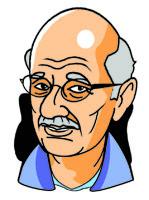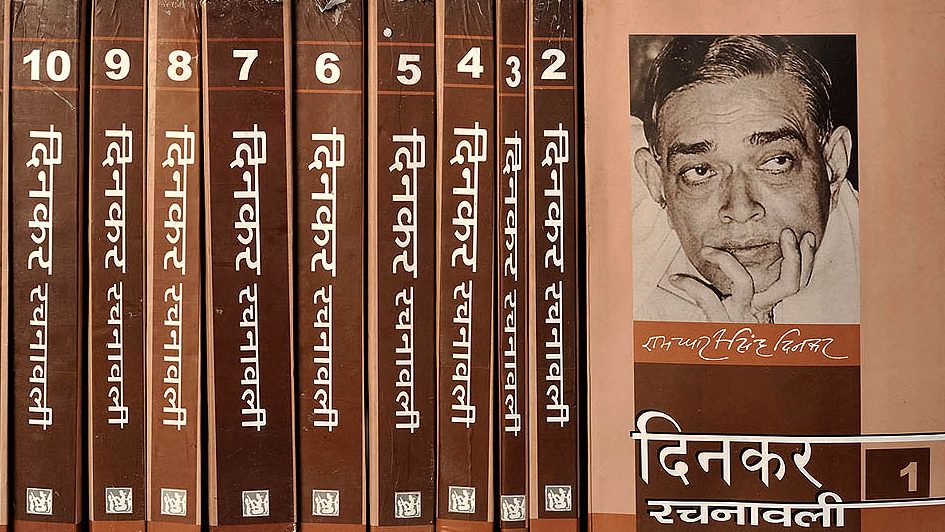Dear Dadu,
The global community is driving towards some Sustainable Development Goals, and we in India are also making at least some small efforts to control pollution.I remember hearing from you a phrase or slogan for life that was once apparently common in your generation: “High thinking and simple living”. Is that not all we need?
Love,
Akanksha
Dear Akanksha,
Well, most or at least many in my generation may have believed in it and lived by it. However, many Indians, both before and after my youth, seem to live by a rather different slogan: “Low thinking and high living”. Or we might say “Lofty slogans and contrary living”!
Because of the influence of mythology in our culture, we Indians don’t have a good sense of time and of history, but let us at least try to look at the matter historically, with some objectivity.
 The British Raj put in place the Indian Forest Act as long ago as 1927. That may or may not have worked in the period up to Independence (I have not seen any study or assessment of it). But our record with maintaining our forests since Independence is plain for all to see.
The British Raj put in place the Indian Forest Act as long ago as 1927. That may or may not have worked in the period up to Independence (I have not seen any study or assessment of it). But our record with maintaining our forests since Independence is plain for all to see.
We ourselves introduced a Wildlife Protection Act only in 1972 and, again, our record in that matter even since then is not exactly brilliant, is it?
Or consider that one of our prime ministers was one of the first two world leaders to speak at the very first UN Global Conference on the Human Environment, which was held in Stockholm in June 1972. But I am not aware that that PM did anything to encourage either environmentalist “high thinking” or “simple living”: the looting of our environmental resources carried on even more vigorously under that PM than under any earlier PM!
Please note that I am not making any statement for or against any political party, nor should my comments in this connection be held to support or attack any particular political leader. All are equally guilty.
The fact is that, in our country, very few are willing to voluntarily live simply. Most are very happy to use “high thinking” to fool themselves, and try to fool others into thinking that they are doing something positive.
National hypocrisy
The influence of mantras and imagination in our culture results in many of us thinking that good thoughts and words are even more important and influential than actual deeds, and, if we say the right things, that substitutes for the way in which one may be living one’s life.
In other words, we have a national culture of hypocrisy. And hardly anyone wishes to talk about that or do anything about it, because we are all so involved in our culture of hypocrisy.
If you try to move only a little distance from our national hypocrisies, you will find yourself instantly acclaimed or vilified as a Mahatma.
 The problem is the following: the “high thinking” of Advaita makes possible the continued existence of the wicked casteism of our country. Similarly, other kinds of “high thinking” (for example, in relation to the environment) become the reason that there is so little effort to actually do anything to tackle the vested interests which ensure that all engagement with environmental issues remains only verbal.
The problem is the following: the “high thinking” of Advaita makes possible the continued existence of the wicked casteism of our country. Similarly, other kinds of “high thinking” (for example, in relation to the environment) become the reason that there is so little effort to actually do anything to tackle the vested interests which ensure that all engagement with environmental issues remains only verbal.
In reality, the existence of any “high thinking” (for example in the form of a law) simply becomes a hurdle to be negotiated with a bit of money under the table, or other favours – in the same way as much of our puja is intended to bribe our gods to get them to be favourable to us.
So, what we need is not simply “high thinking and simple living”. We need also the systems by which to identify and eliminate the false “puja” (or bribery) that subverts our laws. We need a culture by which such “puja” is considered unacceptable. In other words, we need to have people in authority who have the competence and values that make them interested in recruiting people with the highest competence and values to apply the law.
Instead, we have had governments of all parties, since the time of the Emergency, who are increasingly interested in recruiting people with some minimum competence and high “loyalty” to the individual in charge. One of the latest examples is from last month where, for a post of crucial importance to our national economy, our prime minister, from among an outstanding slate of globally qualified and experienced people, picked a loyalist rather than the most qualified person.
Let me put it this way: “High thinking and simple living” can be a slogan that enables us to seek to live in accordance with globally accepted principles of probity. But it can also become a slogan that satisfies us with living in such a way that we continue to collude with wrongdoing, or at least never challenge it.
Our thinking needs to be “high” enough to understand the key things that need to be done by us to improve things in our country and in the world. And our “living” needs to be “simple” or single-minded in pursuing that.
Dear Akanksha, is your thinking high enough by that criterion? And, by that criterion, is your lifestyle simple enough?
I tremble when I apply that question to myself.
Love
Dadu
Published in the February 2016 issue of the Forward Press magazine
Forward Press also publishes books on Bahujan issues. Forward Press Books sheds light on the widespread problems as well as the finer aspects of the Bahujan (Dalit, OBC, Adivasi, Nomadic, Pasmanda) community’s literature, culture, society and culture. Contact us for a list of FP Books’ titles and to order. Mobile: +919968527911, Email: info@forwardmagazine.in)





